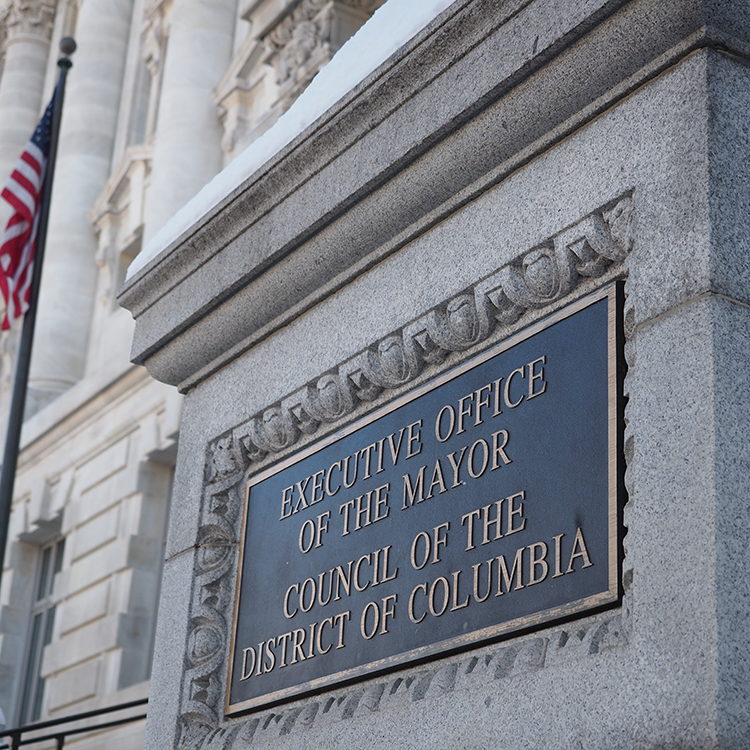As the COVID-19 vaccine rollout continues in Washington, D.C., community members are frustrated over vaccination sign-up protocols and a lack of racial equity in distribution.
Some D.C. residents are criticizing the District’s vaccination effort as supplies from the federal government fail to meet residents’ demand and concerns arise over registration system technology failures, misinformation and racial disparities in vaccination distribution. D.C.’s vaccination program is currently in Phase 1B, which expands vaccine eligibility to those living in the District who are 65 years and older, teachers and other educators in addition to frontline workers, first responders and residents of community facilities like group homes and homeless shelters.
D.C. residents can sign up for a vaccine by calling the city’s coronavirus call center or through an online portal. New appointments are made available for registration on a weekly basis, and residents can register for alerts to notify them when slots open.

The chiefly digital vaccine registration process has challenged some eligible residents, especially those who are 65 and over, according to Advisory Neighborhood Commission 2E Commissioner Kishan Putta.
“They make seniors go online every single week to try again and to keep trying over and over again. It is really stressful,” Putta said in a phone interview with The Hoya.
Like cities nationwide, the amount of residents who are trying to book vaccination appointments outnumbers the quantity of vaccine doses D.C. has received from the federal government. As of Feb. 6, 94,100 doses of the vaccine were delivered to D.C. officials, with 67,688 having been administered. District officials are currently working with the Biden administration to secure greater stores of the vaccine, Mayor Muriel Bowser (D) said in a Jan. 22 press conference. With the shortage of vaccines in D.C., Georgetown University is punishing first- and second-year medical students who were vaccinated while ineligible.
Beyond digital barriers and vaccine shortages, racial disparities in vaccine distribution also trouble many advocates and officials. Black D.C. residents are receiving vaccines in lesser numbers than white ones, as are Hispanic residents to non-Hispanic ones, according to data released by D.C. Health. As of Jan. 28, 17,520 white residents had received at least one vaccine dose, while only 9,967 Black residents and 1,625 Hispanic D.C. residents are recorded as having received at least one dose. Racial and ethnic identity data are often self reported, however, which leads to missing information, according to D.C. Health.
These discrepancies exist despite low-income communities of color experiencing the most significant repercussions of the pandemic. Lengthy appointment registration processes along with difficulty securing transportation and time off from work have contributed to the problem.
Communities of color have also demonstrated heightened skepticism surrounding the vaccine in comparison to other groups. In December, a Pew Research Center poll found that just 42% of Black Americans indicated a willingness to be vaccinated in comparison to 63% of Hispanic and 61% of white adults.
Even within the medical community, reluctance to receive the vaccine exists, according to Anita Jenkins, CEO of the Howard University Hospital, who spoke at a Jan. 29 Public Oversight Roundtable on the District’s vaccination rollout hosted by the D.C. Council Committee on Health.
“I surveyed our own employees, who are majority Black and Brown, and we did realize that we had a significant portion of even that hospital community who were hesitant or unwilling to take the vaccine,” Jenkins said in her testimony.
City leadership must improve communication with residents and prioritize equity in vaccine distribution, according to Councilmember Elissa Silverman, who spoke at the roundtable.
“We do not communicate well with our residents and businesses in a crisis,” Silverman said in her testimony. “We need to be aware that a first-come, first-served approach is just not racially equitable in our city to distribute government services, given that all our residents do not have equal access to high-speed internet, to computers and even just time — time to sit on the phone and schedule appointments.”
To increase equity in vaccine distribution, officials made certain appointments available only for eligible residents in Wards 1, 4, 5, 7 and 8, which have large minority populations and have seen low sign-up rates. D.C. Health announced its “Faith in the Vaccine” initiative Feb. 7, which will host vaccination clinics at churches. The Pennsylvania Avenue Baptist Church in Ward 7 will serve as the pilot for the program, vaccinating residents with pre-registered appointments.
D.C. officials should provide more educational resources about the safety of the vaccine, as many residents lack adequate information, according to Kevin Poge, an essential worker who spoke at the roundtable.
“Most of us get our information from the news or from social media,” Poge said in his testimony. “You know as well as I know when you get your information from social media, you get all the conspiracy theories and everything that comes along with that.”
The Pfizer and Moderna vaccines have undergone rigorous clinical trials and have been proven safe by the Food and Drug Administration, but some residents remain hesitant about making their appointments, according to Putta.
“There are a lot of people who were worried that these vaccines were developed so quickly and that shortcuts must have been taken. There are a lot of people who worry about the side effects,” Putta said. “Luckily I think we can say that both of those reasons for hesitation have been disproven, but we need to really work hard to not just disprove it in theory, but actually to show people and reach people with messaging and convince them that they don’t have to worry about it.”
Considering and accommodating the need for vaccines in multiple D.C. demographic groups is an ongoing challenge for city officials, according to Putta.
“We have priorities based on the need to run our society, and we need to prioritize essential workers,” Putta said. “But we also need to prioritize those who are most vulnerable, and it’s a very hard balancing act.”




















